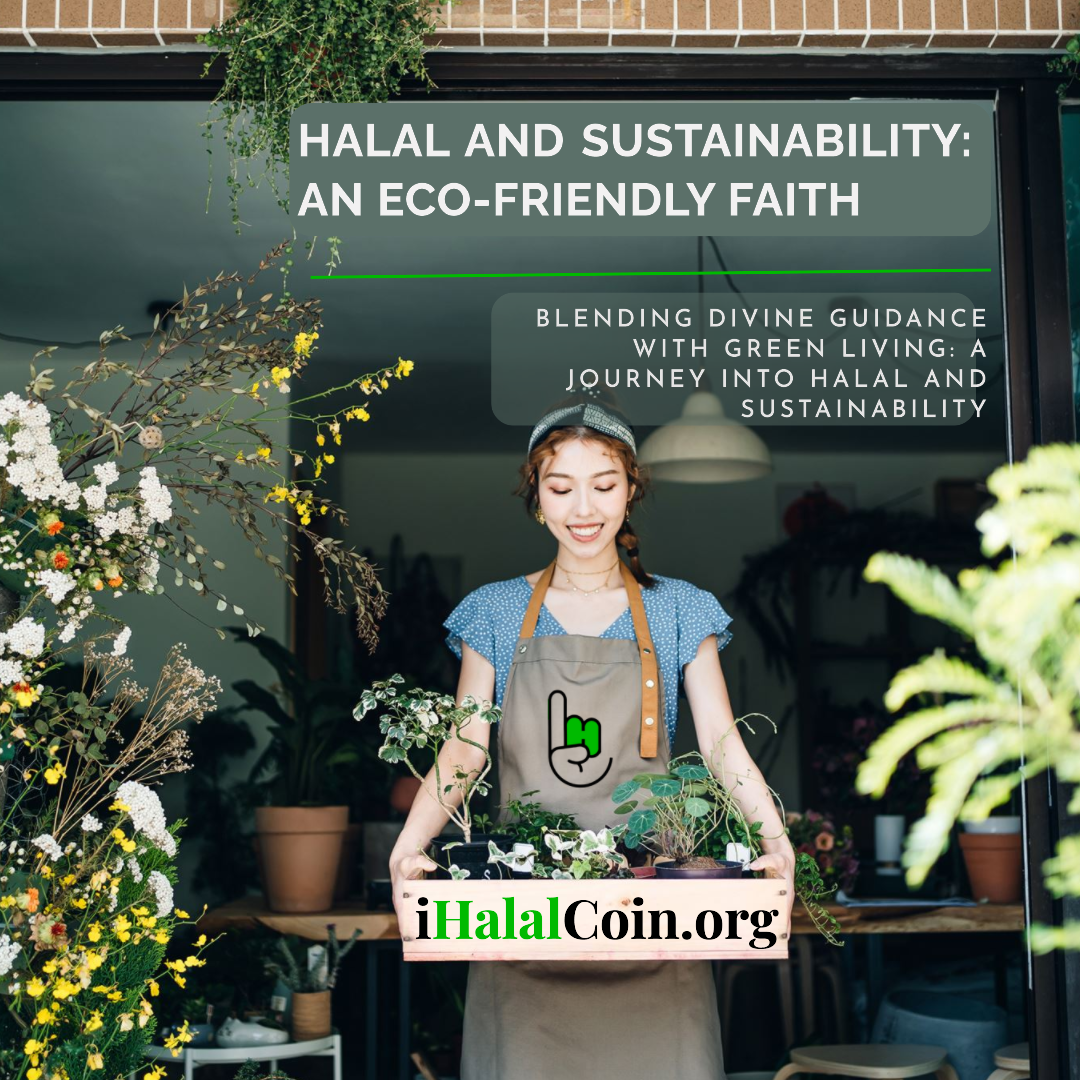Embracing Eco-Friendly Faith
The intersection of Halal and sustainability provides a unique perspective on eco-friendliness. This blog post delves into how these two concepts, deeply rooted in Islamic principles, can guide us towards a greener and more sustainable lifestyle.
In this context, Halal goes beyond the commonly understood dietary laws and touches upon ethical, social, and environmental aspects of life. As we grapple with the environmental challenges of our time, it’s worth exploring how the principles of Halal can contribute to a sustainable and eco-friendly lifestyle.
Halal and Sustainability: A Natural Intersection
The principles of Halal and sustainability naturally intersect in many ways. The Quran’s teachings on moderation and avoidance of Israf (wastefulness) echo the principles of sustainability. For instance, the Quran states, “Eat and drink, but waste not by excess, for Allah loves not the wasters” (Quran 7:31). This principle encourages Muslims to avoid wasteful consumption, which aligns with the core tenets of sustainability.
Moreover, the Islamic principle of ‘stewardship on Earth’ (Khalifa) further emphasizes the responsibility of humans to care for the Earth and its resources. Muslims are seen as stewards of the Earth, entrusted with its care and preservation. This principle aligns with the concept of sustainable development, which calls for meeting our needs without compromising the ability of future generations to meet theirs.

Sustainable Food Practices in Halal
Halal food production offers several examples of sustainable practices. Ethical treatment of animals is a requirement in Halal food production, aligning with sustainable farming practices. Animals must be well-treated, fed a natural diet, and be free from stress and pain at the time of slaughter. This respect for animal welfare aligns with the principles of sustainable and ethical farming.
The prohibition of pork in Islam can also be seen as a sustainable practice, considering that pork farming is a significant contributor to greenhouse gas emissions. Additionally, the Islamic practice of fasting, particularly during Ramadan, encourages mindful consumption and reduces food waste. By abstaining from food and drink from dawn to dusk, Muslims are reminded of the value of resources and the importance of not taking them for granted.
Beyond Food: Halal Lifestyle and Eco-Friendliness
A Halal lifestyle extends beyond food and contributes to eco-friendliness in many ways. The Islamic principle of Taharah (cleanliness) extends to environmental cleanliness, encouraging Muslims to care for their surroundings. This principle can be seen in action through the practice of Wudu (ritual purification before prayer), which instills a sense of cleanliness and purity in daily life.
Ethical consumerism, an aspect of a Halal lifestyle, discourages supporting companies that harm the environment. Muslims are encouraged to consider the ethical implications of their purchases, which can extend to choosing products that are sustainably produced or companies that follow eco-friendly practices. The Islamic concept of Ummah (community) promotes cooperative resource management, fostering a sense of collective responsibility for the environment.

Living Examples: Halal and Sustainability in Action
Real-world examples illustrate the intersection of Halal and sustainability. Green Muslims, a Washington D.C.-based organization, offers educational programs and community service projects to promote environmental stewardship within the Muslim community. They organize events such as ‘Zero Trash Iftar’ during Ramadan, encouraging Muslims to reduce waste during their evening meals.
On the business front, companies like Saffron Road have committed to Halal-certified products while also emphasizing sustainable and ethical practices in their productionprocess. Saffron Road sources its ingredients from farmers who follow sustainable practices and treat their animals humanely. They also use eco-friendly packaging for their products, demonstrating that Halal and sustainability can go hand in hand in the business world.
Conclusion: Towards a Sustainable Future with Halal
As we’ve explored, Halal and sustainability are closely intertwined, offering a path towards an eco-friendly lifestyle rooted in faith. By making mindful choices that align with these principles, we can contribute to a healthier planet and a more sustainable future. This is not just a responsibility, but also an opportunity for us to live our values and make a positive impact on the world.
In conclusion, the principles of Halal offer a holistic approach to sustainability, touching upon various aspects of life from food to consumer habits. As consumers and as individuals, we have the power to make choices that align with these principles, contributing to a healthier planet and a more sustainable future.

